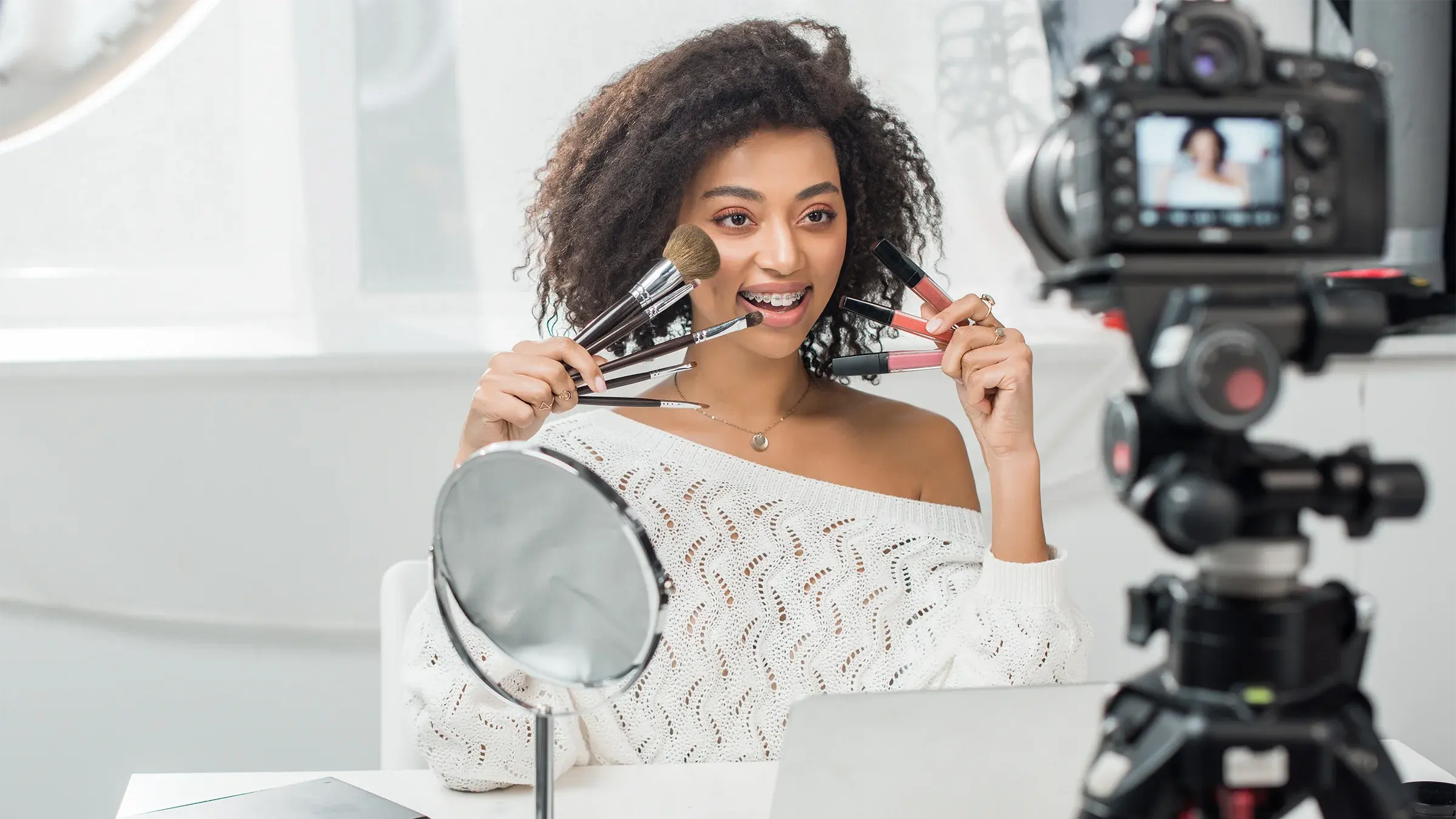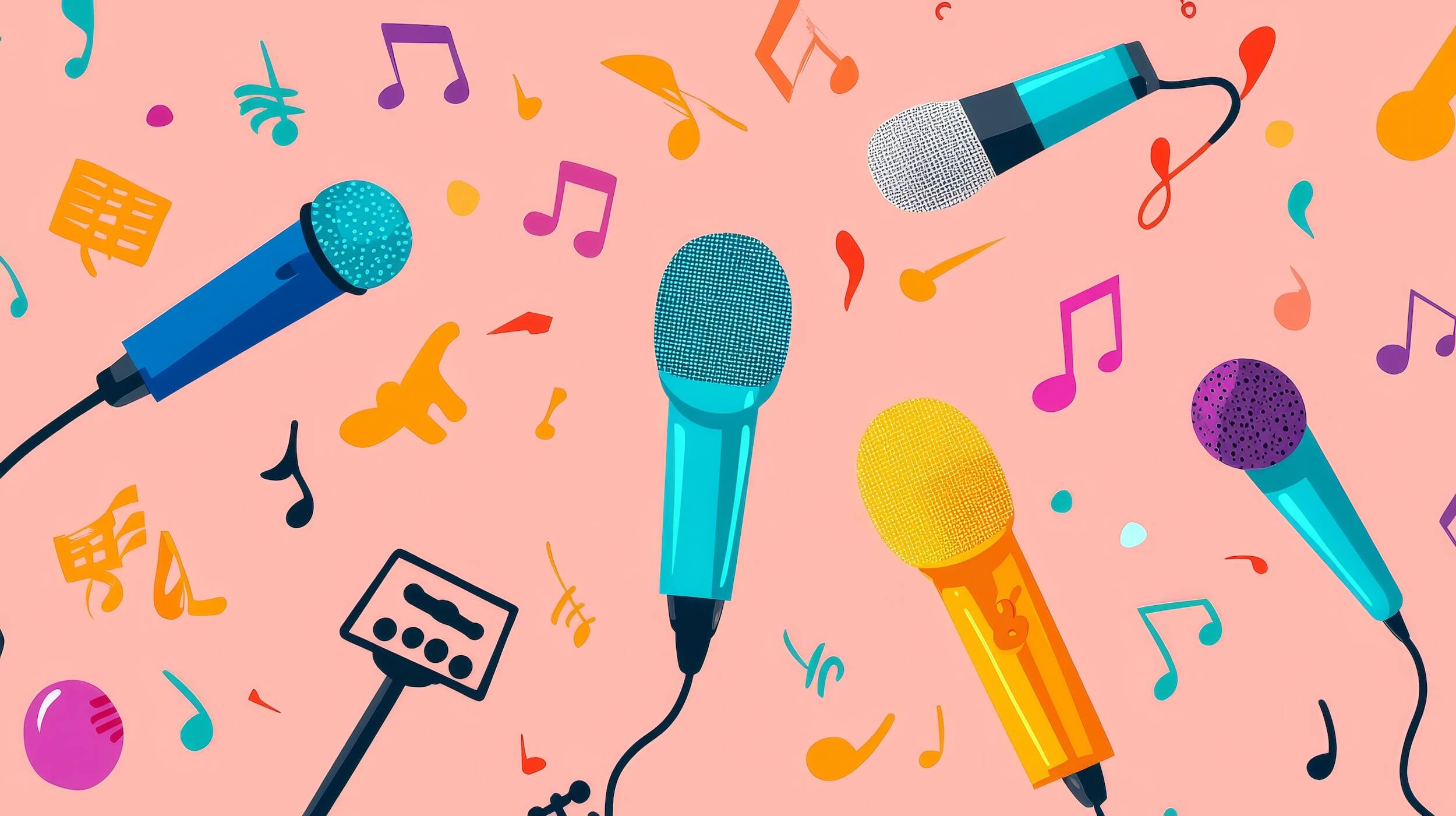In this episode of The Taylor Ten, Associate Director Lauren Qualters sits down with Caroline Chomanics, COO of the environmental nonprofit, Ideas For Us, to explore how grassroots action and innovative solutions are tackling today’s most pressing sustainability challenges. Caroline shares her journey from hands-on farming to leading a global nonprofit, the organization’s five-pillar approach to sustainability (energy, water, food, waste, and ecology), and why food security and closed-loop systems are at the forefront of environmental impact. She also offers powerful insights for marketers on integrating sustainability into storytelling, showing how purpose-driven strategies can inspire communities and brands alike.
.jpg)

How Mission Meets Action for Non-Profits
Intro (00:00):
Welcome to the Taylor 10. A fast-paced, 10 minute deep dive into the minds of those shaking up the marketing world, bringing you the sharpest insights, boldest ideas, and breakthrough trends driving the industry forward. So tune in, get inspired, and stay ahead.
Lauren (00:18):
Hello, I'm Lauren Qualters and welcome to the Taylor 10. I'm here with Caroline Shamanic from the environmental nonprofit, Ideas For Us, to learn as much as I can about the environmental nonprofit space in only 10 minutes. Thanks for joining us. Caroline. Let's start with how you got to where you are today. How did you get involved in the nonprofit space and how did you land on Ideas For Us?
Caroline (00:42):
So thank you so much for having me. I got into the whole environmental nonprofit realm because when I was 20 years old, I was able to live and work at a botanical garden called Nearly Gardens. And during that time I learned the ins and outs of what it means to run a nonprofit. Everything from creating programs to creating impactful projects and events, as well as learning a little bit on the backend of how you can organize and plan financially for a very successful nonprofit organization. So I got a nonprofit internship with Fleet Farming, an urban agriculture program of the nonprofit Ideas For Us that develops and funds and scales environmental solutions to local problems facing our environment. And I was able to start as a farmer. So during that time, I went from working from the horticultural space of a botanical garden to working as a farmer with a nonprofit farming program.
(01:44):
During that time, I basically taught myself all of the skills necessary to be able to build a successful program. So much so that I was moved up in the nonprofit over time to now be the COO. So now I don't just work on farming and horticultural related projects, but I help the entire nonprofit to grow as an organization. And it's really been such a fun thing to see develop over the years. I taught myself accounting, I taught myself project management, grant writing is a big skill that I am very proud of, that has helped us to grow in so many different facets of Ideas For Us.
Lauren (02:25):
As someone who can truly say that they worked in every part and level of the organization before being where you are today, how does that experience impact one, your day to day, but also how you lead the organization and how you communicate with other people?
Caroline (02:41):
So I think that me having so much experience and time boots on the ground helps me to understand all the different details that are necessary from a staff perspective to be able to do their job effectively. I understand that we live in such a harsh environment here in Florida, our summers are brutal. Even our winters are brutal for us because we're not used to the cold, the changing climate, the weather conditions, hurricane seasons. So we have those factors as well as all your different factors in pests and disease and whatnot and growing the plants. So having an understanding of that is really important for someone doing environmental work to understand climate and also the process of growing food and native plants. But also it helped me to understand how a typical staff member may experience leadership as well. So I wanted to grow. I wanted to make a bigger impact. I wanted to learn new skills. And so thankfully I worked for a nonprofit that celebrated that. And over the years I've really been able to develop these different aspects of myself professionally through the nonprofit as well
Lauren (03:55):
As a nonprofit. Your core mission is so integral to the organization, but also just the every day of it. And so as the person at the helm of that, what is the core mission of Ideas for Us, but also how do you personally work to translate that into action?
Caroline (04:11):
So Ideas For Us has a mission to develop, fund and scale solutions to solve the world's most pressing environmental challenges. And how we see that within Ideas For Us is we have five pillars of sustainability, energy, water, food waste, and ecology. This is one of the reasons why I gravitated so much to Ideas, and I am the biggest advocate for our nonprofit because we get to have the public engaged in all aspects of sustainability. We do solar energy education events. We also educate on nuclear energy and different types of renewables. We have waste audits with our waste pillar, we do so many cleanups. We talk about zero waste. We talk about closed loop systems. We talk about composting with our shoreline restoration projects with water. We are actively helping to restabilize shorelines with native plants, whether it's in beaches or springs or lakes. And then of course, food is always going to be one of my favorite parts of Ideas For Us. the fleet farming program is continuing to grow. We are exceeding our expectations even within ourselves with our goals for the various amounts of grants that we're a part of. We're able to grow food and directly give that to those in need. And we just see so much growth in the food aspect of Ideas For Us. Food security is something that touches every single person. And food insecurity is such a big problem that we have within our state, but also within the world.
Lauren (05:45):
Are there any of those ideas that come to mind either internally or just stuff you're seeing in the landscape and the nonprofit landscape that you feel are moving the needle a little bit more tangibly if it's a behavior donation structure or even just a larger scale awareness play?
Caroline (06:03):
Yeah, I think that there's a couple big environmental ideas right now that are exciting and it kind of makes total sense. One of them is in the food recovery space, about 40% of our food is wasted, whether that's food in transit, that's food at the farmer's market or grocery stores that aren't purchased that go bad. And having a closed loop food system where you have somewhat of a circular economy where you have less waste. These concepts can be implemented in our urban environments, and we know that we are quickly urbanizing all rural spaces, which is a scary thought of urban sprawl in general. But when it comes to our urban food systems, we have a lot of food. We just don't really have the right coordination to get that food to the people that need it. And we are able to work with a partner Dream Builders Mission in Tampa, for instance. They have such a great offering to the community of Tampa where they recover the food from the grocery stores in the area. They give that to those in need to the homeless, to low-income seniors, low-income families. And that's a really great idea that we are thinking about right now is how we can mesh maybe Fleet Farming and our food work with that.
Lauren (07:27):
What is something that you wish more people in the marketing or advertising space on the other end of that relationship, what do you wish they understood more about sustainability and storytelling in the sustainability space?
Caroline (07:46):
I think that sustainability is a major selling point. It's something that kind of connects everyone. Like I said, food, trees, pollinators, our native wildlife. These are all things that are generally well received. And when your business comm strategy can involve sustainability, it's a feel good piece, right? It feels good for us, and it does good, especially if you're encouraging people to buy products that have a percentage go back to a nonprofit or come to this fundraiser at your location and it benefits an environmental project in your area. Or even just to promote businesses and services, products that are eco-friendly. So yeah, I think communications teams, whether that's email communications, social media, podcasts, print media, graphic, whatever it is, having natural elements can be a really good decision for your communications plans.
Lauren (08:52):
If you could give one piece of advice or call to action, just like any charge to people in the advertising and marketing industry, what would it be?
Caroline (09:02):
I would say to get involved, reach out to the nonprofits in your area, learn about what's going on within your community, within your city or your county. Educate yourselves on what is happening so you can be an aware citizen, but also that responsibility of that knowledge can be hopefully communicated in a light positive way through your communication strategies. So again, I'm an optimist and I really think that these things are intrinsically good that we're talking about, at least with the projects that Ideas For Us leads and why not feel inspired to make a difference while you're also helping your business or group grow online.
Lauren (09:47):
I definitely, I think, feel, as you were saying, I am smiling, being a little bit happier talking about this. I do feel optimistic and I hope people listening to this can translate that into some inspiration and empowerment too. So thank you for joining us today.
Caroline (10:00):
Yeah, thank you so much for having me.
Get the full report




.jpg)


.png)
.png)
.jpg)
.jpeg)
.jpg)

.jpg)
